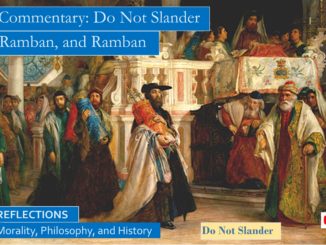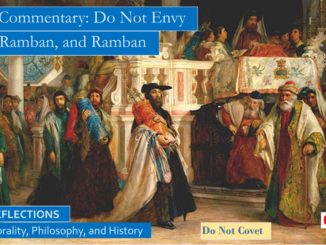
The Decalogue in the Torah, Blog 6, Do Not Bear False Witness Against Your Neighbor
A common misconception is that this Commandment only forbids us to lie. However, this Mitzvah goes deeper. Not only should we not destroy the reputation of our neighbor, we should also guard the reputation of our neighbor like we should build a parapet on our roof. Not only does this Mitzvah forbid us to lie, it also forbids us from telling the truth in a mean and heartless and cruel manner. […]




